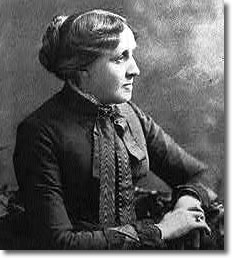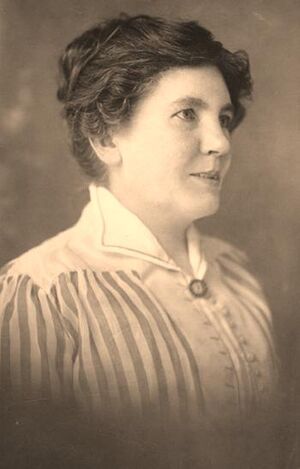.
 |
| Louisa May Alcott |
A few months later --or perhaps years-- we were taken to see the movie of Little Women, the version starring June Allyson and Elizabeth Taylor. I was instantly in love with all the girls, but most especially Jo. I was furious at Rossano Brazzi, who played Professor Bhaer, but I was by then accustomed to falling in love with older women, only to have them snapped up by older guys, some of them with outrageous sideburns. Anyway, of course I had to go home and read the book. (At this time Dad was away at Yale, and did not have the money to come visiting during the breaks. Everybody was glad that I was reading Alcott, and not James Bond, etc ...)
Reading Civil War era novels is heavy going. But through it all, Louisa May Alcott's storytelling shines through. My mother observed my progress through the book (I think I had gotten sick with something serious, but I kept reading), and explained how autobiographical the book was. Looking back, I think I was impressed at how open-hearted Jo March was, a very likely genuine portrayal of the character of the author, Louisa Alcott herself. It was certainly in the spirit of the times for women to be overly sentimental about children and poverty, but there was just enough of a touch of restraint to give Alcott's characters the weight of authenticity.
 |
| Laura Ingalls Wilder |
It is interesting to read just how engaged the middle-class was in national affairs, to the extent that they were able to obtain news of current events. The Alcotts in Boston were far better informed of the events of the war than folks further west must have been. I'm still trying to get a clear idea of what gave solidity to Alcott's boundless enthusiasm. Even in the Little Women, Little Men series, she is already half in jest about her enthusiasm, but she is beginning to see her attitudes about education and the new society she was envisaging, and presumably the vision of whoever inspired the character of Friedrich Bhaer, taking shape. All the way up unto that time, the idealists who were the successors to the founding fathers of America were keeping alive the idealism of those founders, even if some of that manic idealism must have been fueled by the cheap labor provided by slaves and former slaves, and the leisure it brought the propertied classes. Labor was no longer cheap, but the open Western frontier was enough to keep driving the vision of a good society that lay just beyond the horizon. This is the most attractive thing about Louisa M. Alcott: her belief in the boundless potential of young people. This is attractive to me in anybody.
| Charles Dickens |
Arch





No comments:
Post a Comment